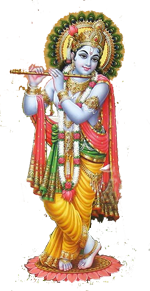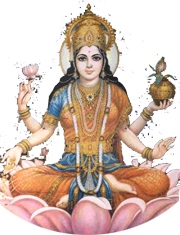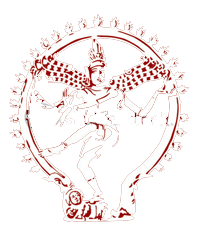


|
|||
DhrupadDhrupad is a form of music that is meant to bring the mind to a peaceful, meditative state. It's an ancient science of sound and music that aim to develop human consciousness and the corresponding nervous system. It is the original form of Indian classical music and has been retained in its pure form to date by traditions of masters. Hence, it also forms a major part of the Indian cultural heritage. Like other great sciences of old India, as for instance Yoga or Ayurveda, it is a powerful tool for life improvement. Read more...
|
Dhrupad workshop in Paris (France)
"Gandharva music is the eternal melody of Nature which is ever lively in Transcendental Consciousness. From there it reverberates and constructs different levels of creation. Gandharva Veda is the basis of all order and harmony in Nature, therefore is has that most harmonizing, most integrating influence."
Music gives a soul to the universe, wings to the mind, flight to the imagination, and life to everything. The practice of singing Gandharva Veda Dhrupad music is one of the most efficient and blissful ways for self development. It enhances awareness in the physiology, enlivens blissfulness and creates harmony in the surroundings. Gandharva Veda Dhrupad is a highly sophisticated science of music aimed at developing human potential and promoting world peace. The nature of Dhrupad is spiritual, seeking to induce a blissful state of peace in the listener. It traces its origin to the ancient Sama Veda, and has been kept alive through the centuries by unbroken traditions of masters. It is the origin of classical Indian music, and its performers were held in high esteem in the royal courts of ancient India. The practice of singing Gandharva Veda Dhrupad creates deep relaxation and brings us more into the present, into a more peaceful and centred state of mind and emotions. With simple exercises we create a dialogue with our body that also strengthen its self healing ability. The basis of this music, and what makes it unique, is a collection of microtonal scales. As any frequency of vibration can be a microtone, the number of potential microtones is infinite. Learning to sing the correct microtones for the different scales needs guidance by a proper Dhrupad expert. The intervals between the notes of different scales can be so small that it is hardly audible for an untrained ear. The exact placement of the microtones is, however, the essence and the basis of Gandharva Veda Dhrupad music. It is the crucial key to its power, and what truly manifests what is called the Raga, which is the mood of the melody of nature. The microtones used in Dhrupad are in tune with natural harmonics. On the basis of these microtones, Dhrupad creates a musical display of the laws of nature that brings our body, mind and emotions in tune with them. To be in tune with the laws of nature is to vibrate in perfect harmony with the all, which is the basis for perfect action, perfect health and enlightenment. The practice of Dhrupad expands our consciousness by the development of the sense of hearing, as it increases the sensitivity to the nuances of sounds and their influences. Sound is perception of vibrations, and everything is ultimately made by vibrations. Even thoughts, emotions and moods have vibrations, and every time of day or night has a specific mood. Through this music, we learn to feel an enjoy the vibrations of the mood of the time of the day, of nature, of our body and of everything that is. It develops a feeling of intimacy with the life force in everything, and thereby of not being separate from the universe. It reawakens our natural connection with the all. By becoming more in tune with the vibrations of creation, we create harmony in our self and the surroundings. Because even space and time ultimately manifest through vibrations, and because of the penetrating nature of sound, Gandharva Veda Dhrupad music also harmonises our relationship with our past and future. There is, however, also another vitally important reason today to become acquainted with this science of music. For the last 150 years or so, the world has been bombarded, and thus conditioned, by music using so called equal temperament scales, which are scales that are actually unnatural and out of tune. The equal temperament is an artificial division of the octave into twelve notes with exactly equal intervals between them. This makes these notes not in accordance with what is called natural harmonics. In addition to being out of tune, this system has reduced the number of possible scales to a very small number compared to what is used in Gandharva Veda. It is also worth noticing that none of the great classical composers wrote for equal temperament, and that for instance Mozart was strongly opposed to his music being played in this system of tuning. Today, however, most music is played and recorded with instruments based on the equal temperament, even in India. And we are so conditioned by this music, that we do not even perceive it to be out of tune. According to many scholars, the equal temperament has been an impediment for experiencing the real harmonising, beneficial effect that music can have. However, because of the dominance of equal temperament, the age old knowledge of the microtonal scales used in Dhrupad are in danger of getting lost. Therefore, we consider it important to partake in spreading knowledge and experiences of this music. For more information on this issue, see the article "Dhrupad and Indian and Western music" on this website. In Shivala's singing classes, the participants are guided to sing the correct microtones. We start every session by singing prolonged notes accompanied by tampura. The rest of the class content varies depending on the prerequisites and needs of the participants. Among the things that Shivala teaches are the following:
There is no prerequisite to participate in a class. It is open for everybody. A booklet and a CD with tampura accompaniment and exercises for home practice are given to the participants.
"Half of Shivala's students are not musicians, but the work she does on their voice is really beneficial, and her approach to microtones and Ragas is so natural that we are rapidly able to sing and feel the Raga, effortlessly and blissfully. This music is magic. The key is to keep it simple and make people dive into the sounds and make it resonate in the physiology. Its really a yoga of sound."
After silence, that which comes nearest to expressing the inexpressible is music. |
Some course experiences"This Dhrupad course was really wonderful. It is a great satisfaction to have learned two ragas in a week and be able to sing and even improvise on these ragas. But what was for me the most wonderful thing was the inner experience. Behind the rather austere word "microtones", we discovered an incredibly rich, subtle and sensitive musical world. When we begin to feel that a note "sounds right", it is as if she (the note) came to life. She vibrates within us and around us. We feel her presence, her energy, her character. We are touched by her purity. Following Shivala in an Alap (slow introduction of a raga) is a real treat for the ears and heart. New notes come to life one after the other and softly start playing and dancing together. The raga taking shape is like a world being created before us. A world of tender feelings and delicate harmonies that fill the heart. Maharishi's words on the harmonizing influence of Gandharva Veda become meaningful. A big thanks to Shivala and her teachers." - Bertrand C. "Coming to this course, I was not sure what to expect, but I was blown away by the search for the perfect sound and the power and energy of its vibration. I felt rising within me an energy of strength and joy. It was a very stimulating course led by an exceptional teacher - yes, yes, really." - Marie J - B. "It was a delightful course through which I felt a profound peace, a constant state of meditation and a feeling of singing something that I had inside me that was one with the universe. Shivala was a wonderful teacher that knew through her competence how to share with me her enthusiasm for Dhrupad. Looking forward to the next course." - Marie-Paule "Surprising experience of deep calmness and clear awareness after chanting root sounds. A pleasant feeling of the body being vibrant, which seems to have a direct and immediate beneficial influence on my health." - Pierre V. "Very happy to give back a little bit of what you gave us during the Dhrupad course in Montgenèvre. It was fulfilling at every level. The group experience was really of deep transcendence during our TM-sidhi-program and coherence and friendship in activity. For me, the experience of singing in a state of deep relaxation supported by the group, by the tampura and by our teacher Shivala, was part of a healing process. It was a reconciliation with music and an opening of new perspectives. Not only did the singing enliven the pure energy in me, but my heart and intellect were nourished and excited by the explanations and sharing of experiences. I just want to thank Shivala and wish she can offer this beautiful way of enlightening the world many times in many places! Très amicalement et avec reconnaissance." - Nadine V.
''The workshop in Dhrupad I followed with Shivala left me a feeling of unity, reliance with the heart, sky and the Universe ... What cleaning!
-Françoise L. "Thank you Shivala for this beautiful courses, where we sing a lot and we laugh a lot! I never thought before, that a singing course, would have effects on all aspects of life! We do not only improve our voice but also our mood, our relations with the others and our health! Just do the experience, and the result will be there!" -Helena B. |
|


